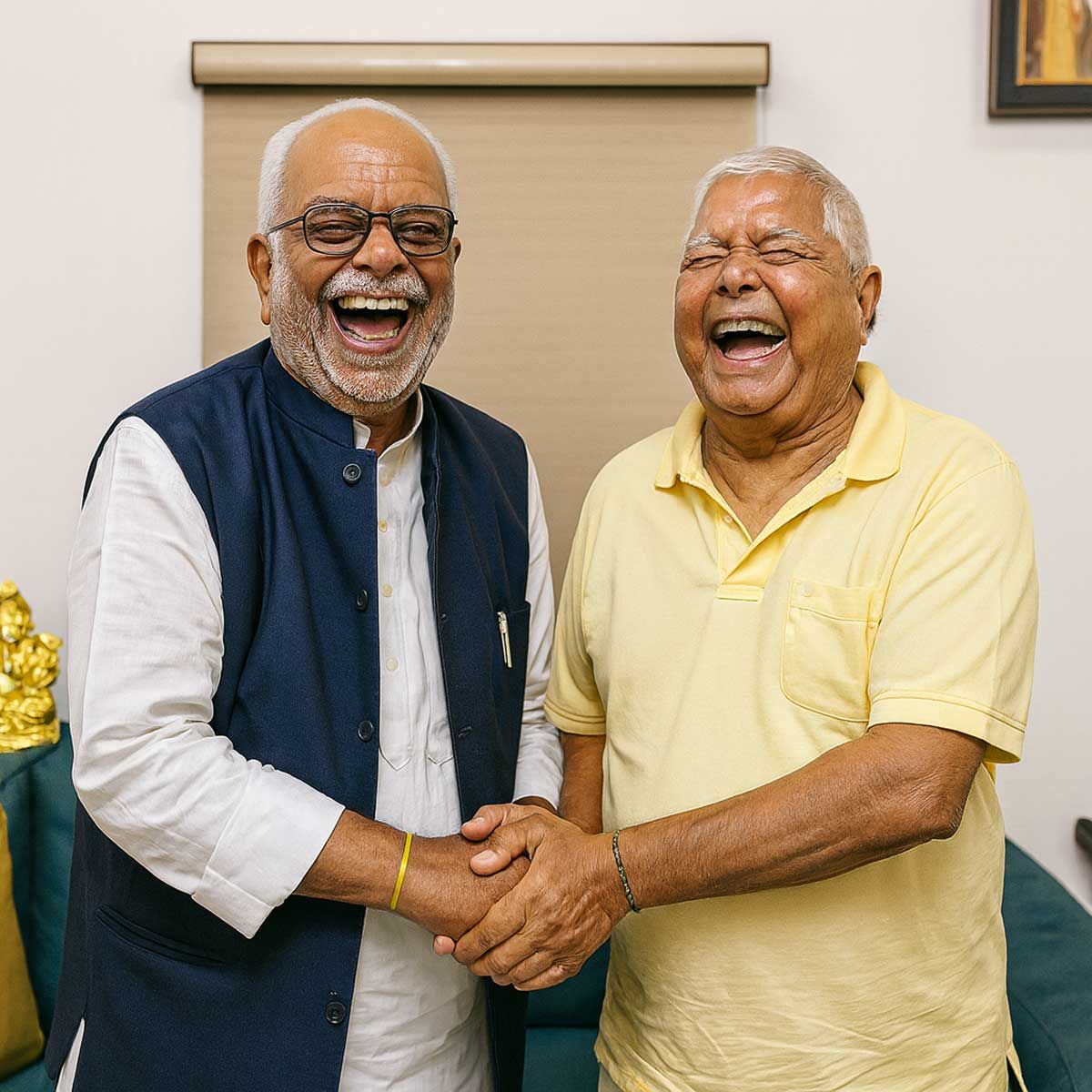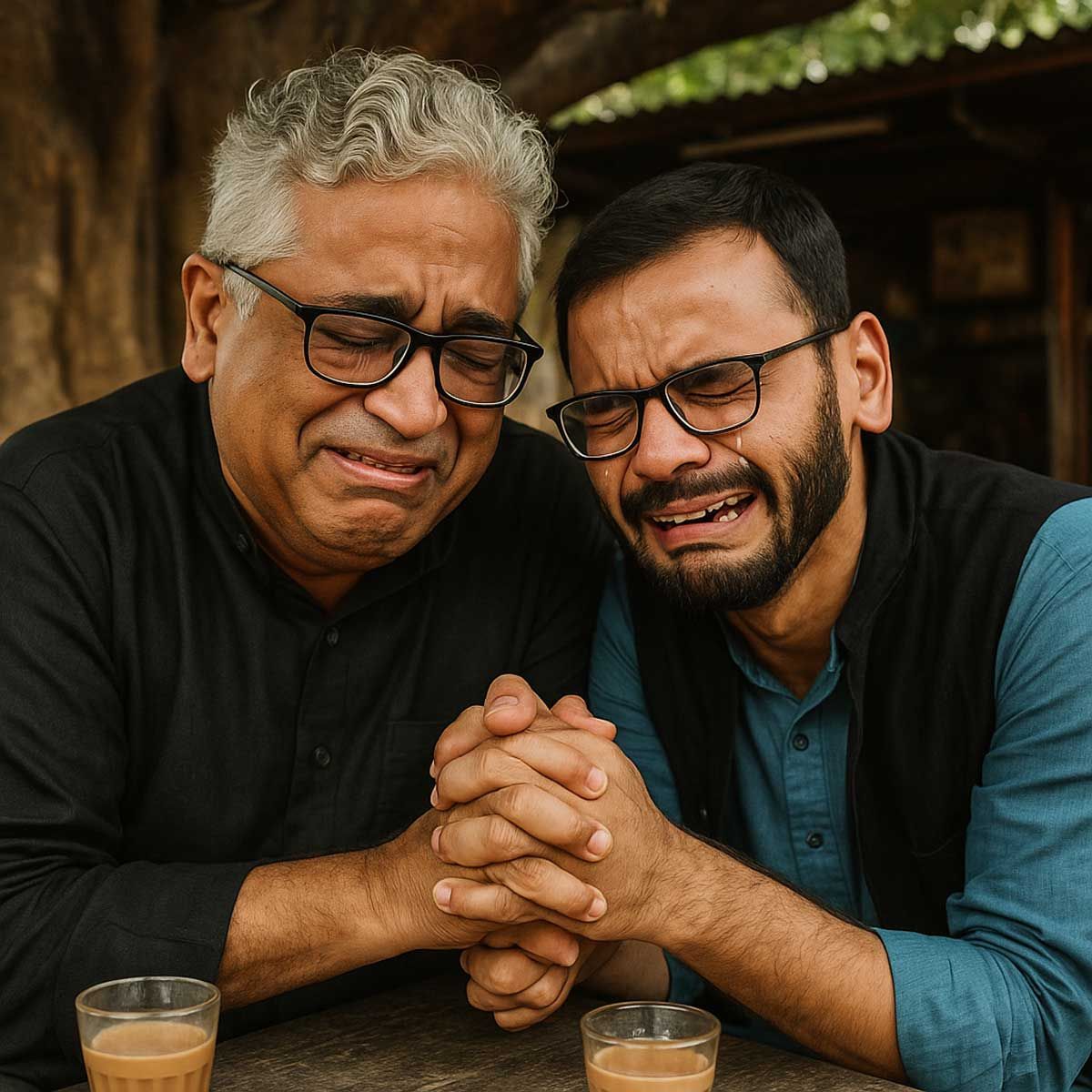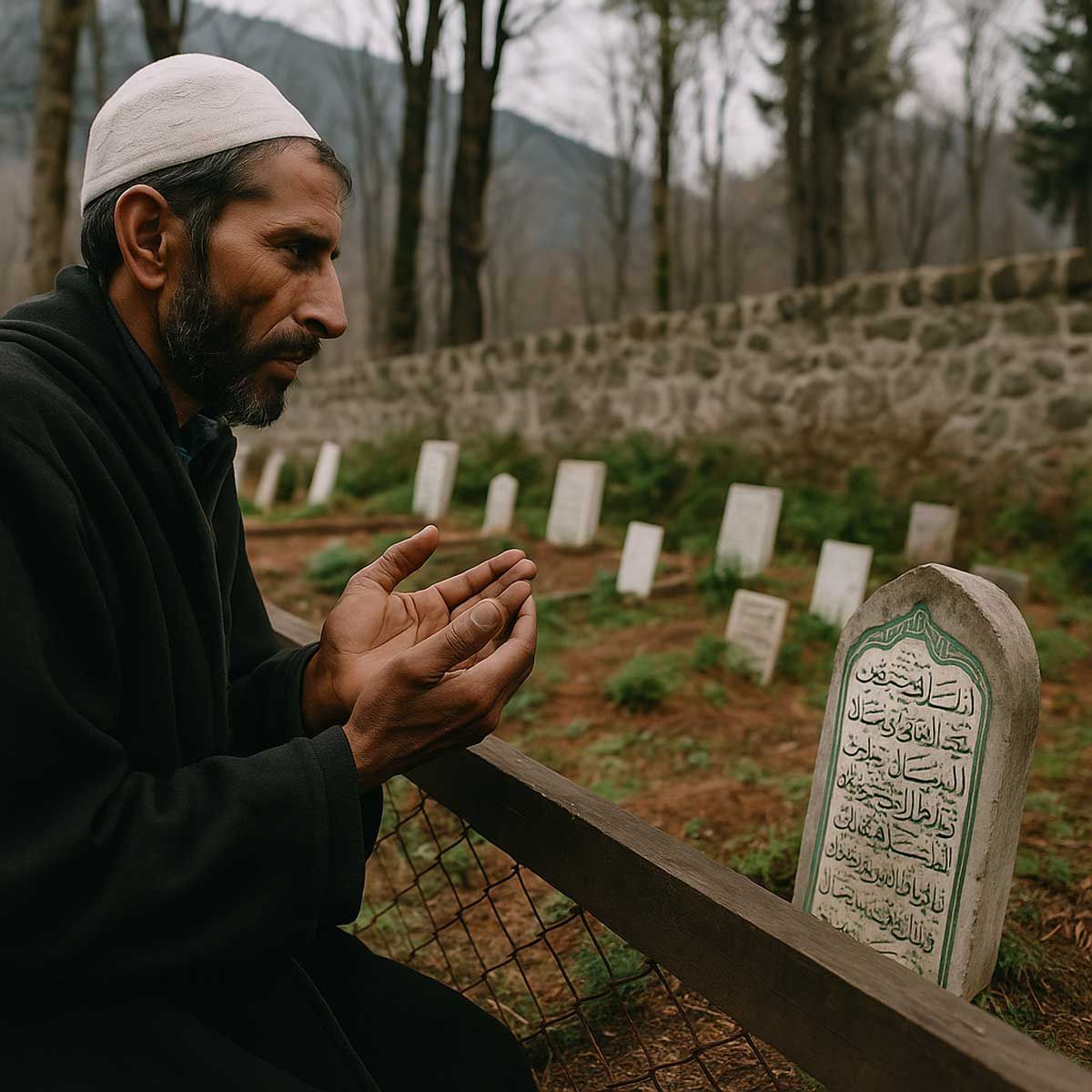More Coverage
Twitter Coverage
Satyaagrah
Written on
Satyaagrah
Written on
Satyaagrah
Written on
Satyaagrah
Written on
Satyaagrah
Written on
JOIN SATYAAGRAH SOCIAL MEDIA
‘Bhagwa Has Won’: After 17 years of torture and false charges, Sadhvi Pragya is acquitted in the Malegaon blast case as the NIA court finds no proof—Congress’s false narrative collapses, and it’s now clear that Hindus cannot be terrorists

On July 31, a turning point was reached in one of India’s longest and most controversial terror trials. A special NIA court in Mumbai acquitted all accused in the 2008 Malegaon blast case — a case that for nearly 17 years had clouded the lives of Sadhvi Pragya Thakur, Lieutenant Colonel Purohit, and others. Most notably, the court ruled that there is no evidence to establish that the bike, allegedly used in the 2008 Malegaon blast that claimed six lives, belongs to former BJP MP Pragya Thakur.
In its detailed verdict, the judge emphasized that while the prosecution did prove a blast had indeed occurred, it failed to connect that explosion to the LML Freedom motorcycle allegedly belonging to Ms Thakur. The court further observed that the prosecution could not conclusively prove that the motorcycle belonged to the Sadhvi. This revelation has thrown a sharp light on the political and legal drama that has surrounded the case for over a decade.
The case, rooted in the tragic 2008 Malegaon explosions, saw a shocking revelation emerge from the courtroom — that Sadhvi Pragya and others accused in the case were framed by the then Congress government using fabricated evidence. These were not merely lapses but pointed allegations of a systemic failure and political misuse of investigative agencies.
The court laid out its reasons clearly. “The motorbike’s chassis number was wiped out, and the engine number is in doubt. There is no evidence to show Sadhvi Pragya Thakur is the owner and no evidence to show she had the vehicle,” the judge stated. With this, the court closed one of the most sensational and politically loaded cases in recent Indian history.
Equally important was the revelation that the crime scene had not been handled with care. The judge noted that the blast site was not properly barricaded, leading to contamination of the crime scene, which undermined evidence collection. This procedural lapse raised further doubts about the integrity of the entire investigation.
From the beginning, the prosecution built its narrative on the claim that a gold-coloured LML Freedom motorcycle registered under Sadhvi Pragya’s name was used in the bombing. One witness said he saw the destroyed bike at the scene, and a chargesheet later alleged that Pragya had given the bike to her associate, Ramji Kalsangra, for use in the blast.
However, there was a glaring discrepancy. Initial news reports had claimed the bomb was planted under the seat of a Hero Honda Passion motorcycle. But in the final chargesheet, that somehow changed to the LML Freedom motorcycle allegedly owned by Sadhvi Pragya Thakur. This inconsistency has led many to question the motivations behind the shifting narrative.
The recent judgment brings closure to an agonizing journey for Pragya Thakur, a woman who once lived a spiritual life as the daughter of an Ayurvedic healer in Madhya Pradesh. Her name became synonymous with controversy when she was accused of retaliatory terror in the wake of the 2006 Mumbai train blasts.
In her late 30s when the case broke, she soon became a polarizing figure in the media under the newly coined label of “Hindu terror.” She was accused of recruiting individuals for the attack, while ex-Army officer Prasad Purohit was accused of providing the explosives. Now, both of them — along with five others — have been acquitted of all charges.
Thakur was present in court when the judgment was announced. Addressing the judge emotionally, she said, “I was summoned, arrested, and tortured. It destroyed my life. I was leading a spiritual life when I was wrongly accused. No one stood by us. I survived only because I am a Sanyasi,” adding further that “there was a deliberate attempt to tarnish the image of saffron. Today, saffron and Hindutva have triumphed, and those truly guilty will face divine justice.”
Speaking to NDTV, Thakur’s sister Upma Singh said that the family had always placed its faith in the Indian judiciary. She said they always believed in the legal system and maintained Pragya’s innocence from the start.
This judgment may not reverse the personal cost endured by Sadhvi Pragya — years lost in prison, public humiliation, and immense physical and emotional suffering — but it does mark a critical moment in India’s judicial history where fabricated evidence was acknowledged and justice finally delivered.
|
‘Bhagwa Has Won’: Sadhvi Pragya’s Defiant Reaction After Acquittal in Malegaon Blast Case
Moments after her acquittal in the 2008 Malegaon blast case, former BJP MP Sadhvi Pragya Singh Thakur addressed the court and the country with words that carried both pain and vindication. Her reaction was not just personal; it reflected years of spiritual endurance and a public fight for her beliefs. Speaking directly to the court, she said, “I have been saying this from the very beginning that those who are called for investigation there should be a basis behind that. I was called by them for investigation and was arrested and tortured. This ruined my whole life. I was living a sage’s life, but I was made and an accused, and no one was willingly standing beside us. I am alive because I am a Sanyasi.”
Her words echoed a deeper grievance, not just about legal injustice, but about what she called an attack on her religious identity. Thakur stood firm in her belief that the entire case was aimed at defaming 'Bhagwa' — the saffron flag that symbolizes Hinduism and the spiritual path she follows. “They defamed Bhagwa through a conspiracy. Today, Bhagwa has won, and Hindutva has won, and God will punish those who are guilty. However, those who defamed India and Bhagwa have not been proved wrong by you,” she added.
The National Investigation Agency (NIA) special court in Mumbai, which presided over the long-drawn trial, finally gave its verdict on Thursday, acquitting all seven accused due to lack of evidence. The list of acquitted includes Pragya Singh Thakur, Major (Retired) Ramesh Upadhyay, Sudhakar Chaturvedi, Ajay Rahirkar, Sudhankar Dhar Dwivedi (also known as Shankaracharya), and Sameer Kulkarni.
After years of legal scrutiny, the court found that the prosecution had not been able to present evidence that could hold the accused guilty beyond reasonable doubt. This judgment now officially absolves all seven individuals of any wrongdoing in connection to the blasts that shook Malegaon in September 2008.
Beyond individual exoneration, the court also addressed the victims of the blast, directing the Maharashtra government to compensate the affected families. As per the order, Rs 2 lakh will be given to each family who lost a loved one in the explosion, and Rs 50,000 will be provided to those who sustained injuries.
The case, which had gripped national attention for nearly two decades, was among the most complex and contested terror investigations in India. Throughout the course of the trial, a staggering 323 prosecution witnesses and 8 defense witnesses were examined. Despite such an exhaustive legal process, the court declared that the accusations under the Unlawful Activities (Prevention) Act (UAPA), the Arms Act, and other related sections could not be sustained.
Presiding Judge Abhay Lohati, in his remarks, summed up the prosecution's key failure. “Prosecution proved that a blast occurred in Malegaon but failed to prove that bomb was placed in that motorcycle,” he stated, dismantling the foundational argument of the case.
Another significant observation came from the judge’s scrutiny of the medical records used as evidence. The prosecution had long maintained that 101 individuals had been injured in the blast. However, the court pointed out inconsistencies, stating, “Court has come to a conclusion that injured people were not 101 but 95 only and there was manipulation. In some medical certificates.”
This observation, too, underlined the broader theme of fabrication, procedural lapses, and manipulated documentation, which have now been spotlighted in what has become one of India’s most high-profile legal collapses.
As the legal dust settles, Sadhvi Pragya’s declaration — "Bhagwa has won, and Hindutva has triumphed" — reverberates as more than just a political statement. For her and many who supported her, it signals the end of what they view as a long and unjust battle, fought not only in the courts but also in public discourse, stained with stigma and suspicion.
|
The Allegations Behind the Malegaon Blast: An Incomplete Puzzle
The charges were rooted in a devastating incident that took place on September 29, 2008, when explosions in Malegaon shook the nation. According to the prosecution, the bomb was planted on a motorcycle — a seemingly straightforward clue that became the cornerstone of a deeply tangled legal drama.
The Mumbai Anti-Terrorism Squad (ATS) soon discovered that the motorcycle had a fake registration number, and both the chassis and engine numbers were suspiciously tampered with. Forensic experts managed to recover the engine number, and based on that, they traced the registration to Pragya Thakur, leading to her arrest on October 23, 2008.
From the start, Thakur maintained her innocence, and more disturbingly, she claimed she was subjected to custodial torture. Although her allegations led to a formal inquiry by the National Human Rights Commission in 2014, the commission later concluded that there was no verifiable evidence of torture.
The controversy surrounding Thakur deepened further in 2019 during her political ascent. She stirred national outrage when she claimed that former Mumbai ATS Chief Hemant Karkare — who lost his life during the 26/11 Mumbai terror attacks — had died due to a “curse” she placed on him. Her exact words were, “I told him he would be destroyed, and a month later, he was killed by terrorists.” Facing widespread criticism, she retracted her statement and later acknowledged Karkare’s martyrdom, calling him a patriot who died in the line of duty.
The saga of the Malegaon blasts has been a complex one — filled with political overtones, shifting narratives, and a deep polarization of public opinion. While the court has now closed the case with acquittals, the larger question of accountability, institutional misuse, and political vendetta continues to linger.
 Support Us
Support Us
Satyagraha was born from the heart of our land, with an undying aim to unveil the true essence of Bharat. It seeks to illuminate the hidden tales of our valiant freedom fighters and the rich chronicles that haven't yet sung their complete melody in the mainstream.
While platforms like NDTV and 'The Wire' effortlessly garner funds under the banner of safeguarding democracy, we at Satyagraha walk a different path. Our strength and resonance come from you. In this journey to weave a stronger Bharat, every little contribution amplifies our voice. Let's come together, contribute as you can, and champion the true spirit of our nation.
 |  |  |
| ICICI Bank of Satyaagrah | Razorpay Bank of Satyaagrah | PayPal Bank of Satyaagrah - For International Payments |
If all above doesn't work, then try the LINK below:
Please share the article on other platforms
DISCLAIMER: The author is solely responsible for the views expressed in this article. The author carries the responsibility for citing and/or licensing of images utilized within the text. The website also frequently uses non-commercial images for representational purposes only in line with the article. We are not responsible for the authenticity of such images. If some images have a copyright issue, we request the person/entity to contact us at This email address is being protected from spambots. You need JavaScript enabled to view it. and we will take the necessary actions to resolve the issue.
Related Articles
- Ahead of the upcoming elections in states AAP making a ton of promises to lure voters to secure a win at any cost: How ‘free electricity' and ‘free money‘ lollipop by Kejriwal puts a high cost on the public
- 'Mahatma' or 'Moron': Gandhi’s experiments with celibacy to attain nirvana state by bathing with women and sleeping with naked girls
- Chinese propaganda campaign video is busted by Indian Army, shares pictures of Indian Jawans unfurling Tricolour at Galwan Valley
- When Nehru faced mass opposition for restraining press freedom and freedom of expression to protect ‘moral standards’ of Indians
- Rahul Gandhi states that India is in a horrible position and that a political revolution is required, hints at impending Civil War to bring ‘political change’ in the country: Says ‘India only needs a spark’ on a global platform
- From the release of all political prisoners from jails to asking India to quit the World Trade Organization are the bizarre demands of BKU (Dakaunda) - Holds massive rally, says will ask questions of Congress and AAP too
- Rahul Gandhi claims he hadn’t heard of ‘lynching’ before 2014: Time to revisit India’s bloodied history featuring his family members
- Congress veteran and former external affairs minister Natwar Singh schools Shehjada Gandhi, says 'China and Pakistan close allies since Nehru era, have illegally collaborated in the nuclear sector'
- Does Congress plan to a coup by assassinating PM Modi? Party workers celebrate after a major security lapse and declare protests were planned
- In her chronic hate for Modi, the Congress spokesperson Dr. Shama Mohamad spread blatant lies about Prime Minister and India’s state-of-the-art pavilion at Dubai Expo 2020, netizens bust false claims by sharing video
- 'Muh me ram bagal me chhuri' - Gandhi’s politics is hollow and noisy, full of treachery and deceit’: Read what Dr. Ambedkar said about the ‘Mahatma’
- How Political ambitions of the Congress has silenced contributions of uncountable freedom fighters
- Mumbai ATS tortured and forced witness in the 2008 Malegaon blast case to falsely accuse Yogi Adityanath and RSS leaders
- If only India’s partition chilling wound was not enough, Gandhi did his last protest again only to blackmail India into giving 55 crores to Pakistan, dragged Hindu, Sikh refugees seeking shelter in mosques to die in cold: And we call him Mahatma, not for
- Anything atrocious and we have Hindu identity to merit, but for the good, we have a tough choice: Mughals, British, or Nehru




























